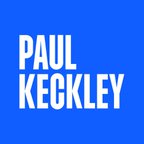The 29th U.S. News & World Report Best Hospitals report was released last week. There were few surprises: academically-affiliated institutions fared better than others. Urban and bigger hospitals get higher ratings. Investor-owned hospitals and safety net hospitals were less likely to make the honor roll. And physician perceptions of a hospital’s programs are key to U.S. News Best Hospitals recognition.
Being designated among U.S. News Best Hospitals is coveted. Hospital marketers are quick to announce their ranking as it is arguably the industry’s best known. Prominent institutions appear at the top each year. The perennials are familiar brands:
So, is U.S. News Best Hospitals recognition key to a hospital’s success? Here are the facts:
1. Consumers pay more attention to patient reviews than hospital report cards. According to National Research Corporation, 31% of the population has visited a hospital website recently and 32% said patient reviews about specific clinical programs was the target of their searches. According to Reputation.com, most searches about hospitals originate through Google or a general search engine, not a hospital website, as info-seekers look for expertise around a specific diagnosis or treatment. Notably, what other patients say about these services is important to seekers but fewer than half of all hospitals offer patient reviews. In fact, consumers trust Google eight (8) times more than CMS Hospital Compare, the official government report card, according to Reputation.com. So, hospital report cards and formal rating sources like the CMS’ HCAHPS are less impactful than sites like YELP that facilitate unstructured, nuanced, sometimes inaccurate information about patient experiences.
2. The U.S. News Best Hospitals methodology offers a credible but incomplete view of a hospital’s performance. Through the years, the U.S. News Best Hospitals methodology has evolved to include objective measures from 20 datasets such as risk-adjusted survival, readmission rates, volume, patient experience, patient safety, quality of nursing and others. Working with RTI International, a research firm headquartered in Research Triangle, NC, changes were made to its 2018-19 methodology to give more weight to patient outcomes and patient experiences but how a hospital manages higher-risk patient populations weighs heavily in its methodology. For the first time this year, ICD-10 coding was used and the risk adjustment methodology was ungraded to exclude inpatient transfers to more accurately reflect the hospital’s patient care processes. Of the 16 clinical programs ranked, rankings for 4 (ophthalmology, rheumatology, psychiatry and rehabilitation) are based entirely on physician surveys. It’s a credible methodology for assessing a hospital’s handling of patients in 16 areas, but it’s incomplete.
The U.S. News Best Hospitals methodology does not address measures of significant importance to the future of a hospital: information technology capabilities, adherence to evidence-based practices, total costs of care for bundled services, prices for ambulatory and elective services, the accessibility to facilities and digital health capabilities, perceptions of primary care clinicians who refer to the hospital and its specialists, the views of payers, interactions with consumers in varied states of health to name a few.
To get a complete picture of a hospital’s performance, info-seekers must compare among several sources. Since 2008, HCAHPS (Hospital Consumer Assessment of Healthcare Providers and Systems) data has been available to the public providing 27 measures of patient perspectives of hospital care. Leapfrog, CMS 5-Star Ratings, Propublica, Consumer Reports. HealthGrades, IBM Watson and others are options: each has a unique focus. IBM Watson’s comparison of hospital efficiency and financial performance is highly regarded. Propublica’s focus on surgical processes and outcomes is credible. Consumer Reports consumer friendly scoring from 1-100 is easy to use. And Leapfrog’s focus on patient safety is well-received. The fact is no single report card about a hospital tells a complete story. In fact, a 2012 study found only 8% overlap between U.S. News Best Hospitals and Consumer Reports recognition.
All lean heavily on publicly accessible data from Medicare and the American Hospital Association’s Annual Survey. As a result, it’s somewhat dated. For instance, the 2018-2019 U.S. News Best Hospitals ranking use the AHA’s 2016 analysis of 33 million discharges from U.S. hospitals. Data about primary and preventive health, outpatient and extended care, affordability and chronic care coordination are missing or inadequate. Understandably, some of the most innovative, efficient and effective hospitals fail to garner recognition in these report cards. (Manian et al”A Comparison Between Rankings of Top Hospitals by the U.S. News & World Report and the Consumer Reports Patient Ratings: Clarity or Confusion for the Empowered Consumer?”. Journal of Consumer Health On the Internet. 16 (2): 162–169).
3. The value of U.S. News Best Hospitals recognition is indirect. The direct correlation between U.S. News Best Hospitals recognition and a hospital’s financial performance, market share, patient volume or clinical outcomes is undetermined. Academics have shown recognition helpful to a hospital’s fund-raising, physician recruitment, employee morale and positioning in an insurers network but that’s it. But payers balance U.S. News Best Hospitals reputation with a hospital’s costs and range of services in their negotiations and rarely agree to terms lacking discounts. And, because U.S. News Best Hospitals methodology is tilted toward inpatient programs and how hospitals manage higher risk patients in each, it does not paint a complete picture.
U.S. News Best Hospitals 2018-2019 will be on bookshelves next month. Producing rankings has been its staple for 30 years. It now produces rankings in eight (8) categories—health, education, law, travel, money, cars, real estate and new rankings in which the healthiest states are ranked—and hospital rankings is among its most popular. Its suite of health rankings also includes Best Doctors, Best Medicare Plans, Best Nursing Homes, Best Diets and Best Health Plans plus a Doctor Finder application.
Does U.S. News Best Hospitals recognition matter? Yes. But it’s only a piece of the puzzle.
Paul
P.S. College football starts this week. The pre-season rankings have perennials Clemson and Alabama at the top. Like the U.S. News Best Hospitals Honor Roll, perennials are hard to displace until and unless they stumble.

